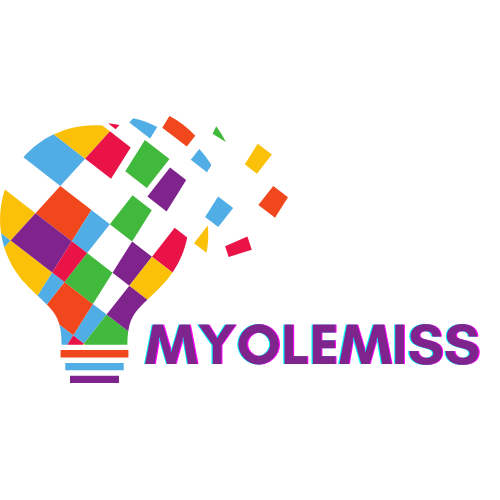
Higher Education Consulting Jobs: Unlock Your Potential in an Impactful Career
In a world where higher education often feels like a maze of confusion and bureaucracy, higher education consulting jobs shine like a beacon of hope. These roles offer a unique opportunity to help institutions navigate the complexities of academic life while making a difference for students and faculty alike. Imagine being the superhero of the education sector, swooping in to save the day with your expertise and strategic insights.
But it’s not all capes and glory; the consulting world requires sharp minds and creative problem solvers. Whether it’s optimizing enrollment strategies or enhancing student experiences, those in this field play a pivotal role. So, if you’ve got a knack for turning chaos into clarity and a passion for education, higher education consulting might just be your calling. Let’s dive into what makes these jobs so exciting and how they can shape the future of learning.
Higher Education Consulting Jobs
Higher education consulting jobs focus on providing strategic advice to educational institutions. These roles involve evaluating academic programs, improving operational efficiencies, and enhancing student outcomes.
Definition and Scope
Higher education consulting entails guiding colleges and universities through various challenges. Consultants assess institutional strengths and weaknesses while proposing tailored solutions. These professionals engage in project management, data analysis, and strategic planning. Topics covered include enrollment management, curriculum development, and accreditation processes. Many consultants specialize in specific areas, such as financial aid or academic technology, providing targeted expertise.
Importance in the Education Sector
Higher education consultants play a crucial role in the education sector by driving institutional improvement. They identify best practices and help implement them effectively. Their insights can lead to enhanced student engagement and retention rates. By fostering innovation, these consultants bring fresh perspectives to longstanding issues. Institutions benefit from consultants’ expertise in navigating regulatory changes and financial pressures. Ultimately, their work supports educational quality and prepares institutions for future challenges.
Types of Higher Education Consulting

Higher education consulting encompasses various roles that play significant parts in enhancing institutional effectiveness. These consulting types address specific needs, facilitating improvements across educational landscapes.
Institutional Consulting
Institutional consulting focuses on optimizing the operations and structure of educational institutions. Experts in this field conduct thorough assessments of college or university practices. They evaluate administrative processes, resource allocation, and governance structures to identify areas for improvement. Engaging with stakeholders, these consultants recommend tailored strategies that align with institutional missions. Their insight often leads to enhanced operational efficiencies and improved institutional performance over time.
Program Development Consulting
Program development consulting aims to enhance educational offerings by designing and refining academic programs. Professionals in this area collaborate with faculties to gather data on market trends and student needs. They utilize this information to shape curricula that meet current workforce demands. By ensuring academic programs are relevant and rigorous, consultants help institutions increase enrollment and improve student outcomes. Successful initiatives often result in innovative course offerings and partnerships that enrich the educational experience.
Strategic Planning Consulting
Strategic planning consulting involves crafting long-term visions and actionable plans for educational institutions. Specialists assess external factors such as market conditions, competition, and emerging technologies. They facilitate workshops with key stakeholders to inform strategy development. Engaging in this process enables institutions to establish clear goals and initiatives that respond to dynamic educational landscapes. Effective strategic planning leads to sustainable growth and enhances the institution’s ability to adapt to changes in higher education.
Skills Required for Higher Education Consultants
Higher education consultants require a blend of skills to effectively navigate the complexities of academic environments. Key capabilities include analytical, communication, and project management skills.
Analytical Skills
Analytical skills play a vital role in assessing institutional strengths and weaknesses. Consultants evaluate academic programs and operational efficiencies using data-driven approaches. Effective data analysis leads to insights that inform strategic decisions. Understanding trends in enrollment and student success can pinpoint areas for improvement. Additionally, identifying best practices within the educational landscape enables consultants to foster innovation.
Communication Skills
Communication skills are essential for conveying complex ideas clearly and persuasively. Consultants interact with diverse stakeholders, including faculty, administrators, and students. Building rapport helps in understanding institutional needs and challenges. Presenting findings and recommendations requires clarity and effectiveness to ensure buy-in from various groups. Skilled communicators adapt their messages for different audiences, fostering collaboration and shared understanding.
Project Management Skills
Project management skills help consultants lead initiatives and drive change within institutions. Effective consultants utilize planning tools to develop actionable strategies aligned with institutional goals. Coordinating tasks and resources ensures projects stay on track and meet deadlines. Monitoring progress allows for adjustments as needed to maintain momentum. Team collaboration fosters an environment where goals are met efficiently and effectively.
Career Path and Opportunities
Higher education consulting offers diverse career paths and opportunities. Professionals navigate various roles that contribute to institutional success.
Entry-Level Positions
Entry-level positions typically include roles such as research assistants and program coordinators. These roles allow newcomers to gain insights into institutional operations and consulting practices. Responsibilities often involve data collection and analysis, providing a solid foundation for future endeavors. Exposure to project teams helps build essential skills in communication and teamwork. Graduates of relevant fields like education, business, or social sciences often pursue these positions, establishing themselves within the consulting landscape.
Advanced Roles and Specializations
Advanced roles include senior consultants and project managers, leading complex initiatives across institutions. Specializations, such as enrollment management or strategic communications, offer deeper expertise in targeted areas. Professionals in these roles often engage with institutional leadership to drive strategic changes and innovations. Strong analytical abilities enhance decision-making processes, impacting educational quality positively. Individuals with years of experience frequently transition into these positions, leveraging their backgrounds to influence large-scale projects.
Challenges in Higher Education Consulting
Higher education consultants face various challenges that impact their effectiveness. Staying current with industry changes is crucial for success.
Industry Changes and Adaptation
Rapid changes in technology and educational standards require constant adaptation. According to the National Center for Education Statistics, online enrollment grew by 10 percent, reflecting evolving student preferences. Responding effectively involves consultants mastering new educational tools and practices that enhance learning outcomes. Monitoring trends in student demographics further guides program development. Consultants must also adapt strategies to address shifts in funding and regulatory requirements, ensuring institutions remain compliant while meeting student needs.
Balancing Client Expectations
Aligning client expectations with institutional capabilities demands clear communication. Clients may envision ambitious projects without fully understanding available resources. Establishing realistic goals fosters trust and promotes long-term partnerships. Evaluating existing infrastructures before proposing initiatives allows for attainable recommendations. Expectations often fluctuate based on stakeholder input, making it essential for consultants to engage thoroughly with all parties. Consulting professionals must navigate these dynamics, balancing ambition with practicality to promote sustainable success.
Conclusion
Higher education consulting jobs offer a unique opportunity to shape the future of educational institutions. By leveraging analytical skills and creative problem-solving, consultants can drive meaningful change that enhances student experiences and institutional effectiveness.
As the landscape of education continues to evolve, these professionals play a vital role in navigating challenges and implementing innovative solutions. With diverse career paths available, aspiring consultants can find fulfilling roles that align with their passions and expertise.
The impact of higher education consultants extends beyond immediate outcomes, fostering a culture of continuous improvement and adaptability in institutions. Embracing this dynamic field can lead to rewarding careers that contribute significantly to the advancement of education.



